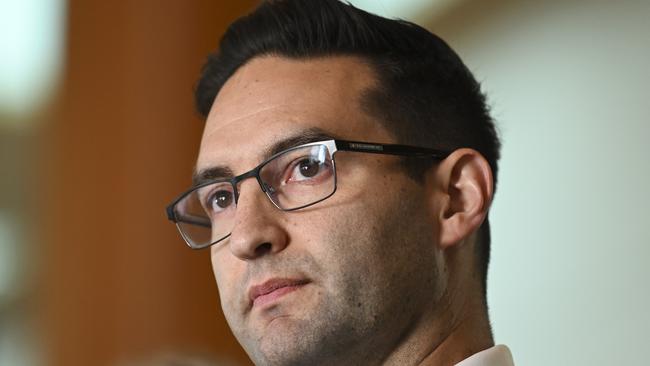Labor pushes new plan for a Human Rights Act
Labor MPs propose more deeply integrating human rights into policy making and the public service with specialised units inside each government department.

A parliamentary committee has recommended the establishment of a Human Rights Act, suggested a draft bill and proposed more deeply integrating human rights into policy making and the public service.
The inquiry, initiated by Attorney-General Mark Dreyfus, has proposed a bill broadly modelled on a proposal put forward by the Australian Human Rights Commission (AHRC) and the creation of “specialised human rights units in each government department.”
The committee also urged the government to consider expanding the role of the AHRC so it could conduct inquiries into “systemic human rights concerns” on its own initiative.
Chair of the Parliamentary Joint Committee on Human Rights, Josh Burns, said Australia was one of the few liberal democracies without a Bill of Rights or a Human Rights Act.
“It’s time we start the conversation about what needs to be done so we can get there,” Mr Burns said. “The committee received 335 submissions.”
“Submissions were overwhelmingly in favour of the introduction of a Human Rights Act, with only 4 per cent opposed. The committee considers our current piecemeal approach is inadequate to properly protect and promote rights in Australia.”
“With a Human Rights Act in place, the federal parliament would need to expressly consider rights when making laws,” he said. “I reject the notion that a Human Rights Act risks politicising the judiciary and opens the floodgates to litigation.”
“Under this proposed model, most complaints will be settled through conciliation,” he said. “Judges would not be able to strike down any laws on our books.”
The Coalition issued a dissenting report with the LNP deputy chair of the committee, Henry Pike, warning that a Human Rights Act was “clearly not a guarantee of achieving protection of human rights.”
“The United States Bill of Rights did not prevent the practice of slavery,” Mr Pike said. “The French Declaration of the Rights of Man did not prevent the bloodshed and summary justice or the Reign of Terror.”
He warned that a Human Rights Act, as proposed, would “weaken our parliamentary democracy and politicise our judiciary.”
“Australia’s democracy is robust, open and vigorous. This parliament is the best institution to defend human rights and to debate and determine the balance of competing rights through legislation,” Mr Pike said.
He also warned the rights proposed in the suggested Human Rights Act were inconsistent with those protected under Article 18 of the International Covenant on Civil and Political Rights (ICCPR).
“It devalues internationally recognised protections for the freedoms of thought, conscience, religion and belief,” he said. “Coalition members consider that this would represent a significant departure from the robust religious freedom protections outlined in Article 18.”
Mr Pike said that preference had “clearly been given to non-discrimination protections over individual freedoms, despite these freedoms being regarded by the ICCPR as absolute.”
“Coalition members are concerned that an act of this nature could be utilised as a Trojan horse for social agendas that cannot be progressed successfully through the political process.”
Adjunct professor in the law school of the University of Notre Dame, Mark Fowler, was quoted in the Coalition’s dissenting report warning that the AHRC model would undermine confidence in the judiciary.
“It requires judges to interpret Australian law against principles that are abstract and
imprecise, which then requires judges to determine the substantive content of the law in question and thus make law,” Professor Fowler said.
In addition to proposing a Human Rights Act, the committee report endorsed by Labor MPs as well as crossbench Senator, Lidia Thorpe, and lower house independent MP, Kylea Tink, made 16 other recommendations.
Other key recommendations include “significant and ongoing funding of human rights education” including in primary and secondary schools and funding the AHRC to “develop educational programs and resources.”
It also proposes making “basic human rights training mandatory for all Australian Public Service employees” and ensuring the training is available to all parliamentarians.
The committee has also recommended that the government update the APS Code of Conduct to ensure public servants “respect and promote human rights.”
It proposed the government “set up specialised human rights units in each government department” to provide advice on the applicability of human rights within each portfolio and establish a Human Rights Office (HRO) in the Attorney-General’s Department.
The HRO would provide advice on legislation and policies at an “early stage of development”
on how it could better protect human rights.
A spokesman for Mr Dreyfus told The Australian the government would “consider the report” and had “no plans to introduce a federal Human Rights Act”. “The government is committed to protecting the human rights of all Australians and is committed to enhancing and protecting Australia’s human rights framework,” the spokesman said.
In October last year, Australia’s Christian schools peak body warned that a proposed federal Human Rights Act could threaten religious freedoms, and called on the government to reject the AHRC’s model.




To join the conversation, please log in. Don't have an account? Register
Join the conversation, you are commenting as Logout